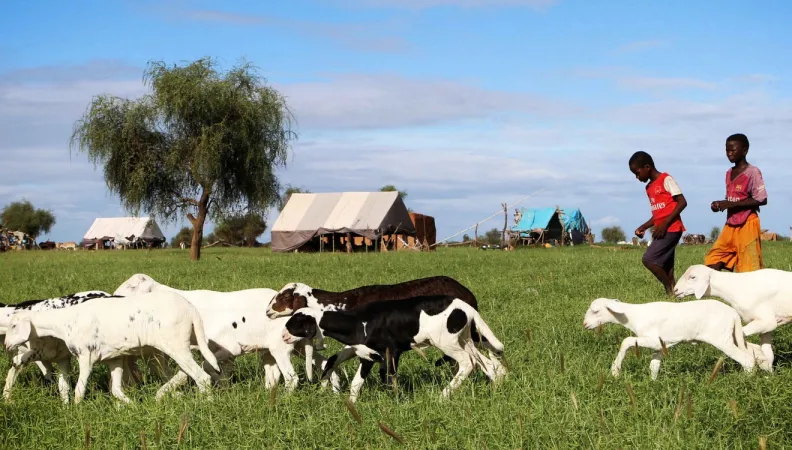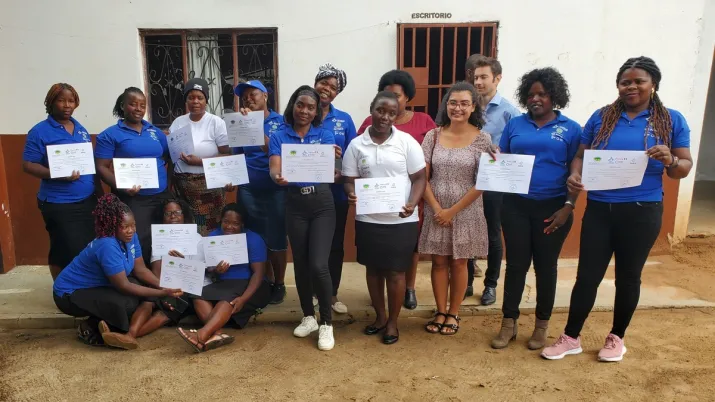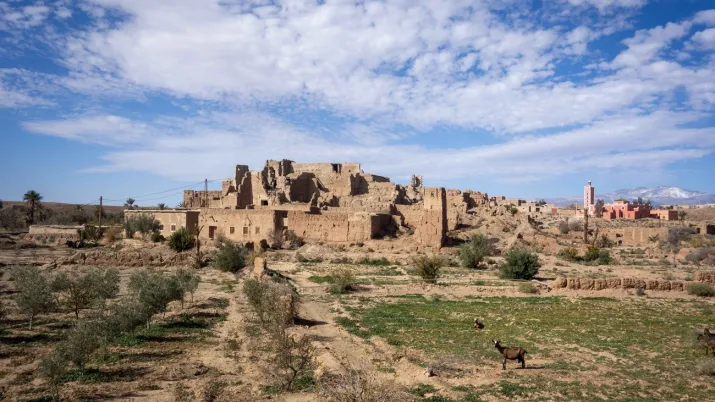Share the page
One Health: a comprehensive approach to health, for better food systems
Published on

On March 27 and 28, France will host the Nutrition for Growth (N4G) summit, whose goal is to make nutrition a permanent item on the political agenda. One of the main themes of this summit is the One Health approach, which looks at health from a three-way perspective: human, animal, and environmental.
At an AFD-organized event at the 2025 Agricultural Show in Paris, Jean-Sébastien Conty, Deputy Director for Global Affairs at the French Ministry for Europe and Foreign Affairs, made this statement: “Only a ‘One Health approach’ will enable us to achieve the Sustainable Development Goals by 2030.” By considering human, animal, and environmental health together, the One Health approach is a tool to help us think out the transformation of our food systems.
The One Health approach
Three billion people lack access to healthy and sustainable food. This problem is particularly severe in Africa, where 1 in 5 people suffered from hunger in 2023. One thing is clear: our food systems are failing. Meanwhile, collateral risks are heightened by the fact that the three types of health (animal, human and environmental) are intertwined. Climate change already has an impact on land use; agricultural inputs are causing pollution; and urban sprawl is increasing contacts between wild and domestic animals, thereby heightening the risk of the spread of diseases…
“These interdependencies between climate, biodiversity and health lead to many negative consequences,” says Thierry Lefrançois, a researcher at CIRAD (the French agricultural research and international cooperation organization), “but there are also many co-benefits, and this is the context in which CIRAD and AFD are working to meet the challenges of climate and biodiversity.” The One Health holistic approach seeks to maximize these co-benefits by considering the issue of nutrition when reflecting on the transformation of our food systems, from supply to consumer behavior.
Mainstreaming the One Health approach into projects
AFD supports several projects that mainstream this approach. One example is the construction of the Kaddoussa dam in Morocco, whose goal is to improve the resilience and sustainability of agricultural development in the Boudenib Plain, one of the regions most heavily affected by climate change. The project is promoting productive and sustainable irrigated agriculture, which will lead not only to improvement in soil quality, but also to positive effects on the environment and animal health. AFD also takes a preventive approach through its support for the SEGA-One Health network for epidemiological surveillance and alert management in the Indian Ocean.
See also: Developing regional networks for integrated health surveillance
Stéfano Masson, Program Manager at AVSF (Agronomists and Veterinarians Without Borders), is responsible for implementing the One Health concept in Haute Casamance, Senegal, via the Thiellal project. He observes that the dense circulation of people, animals, and chemical products in this region makes the health situation there particularly vulnerable. “When we started working on the ground, we realized that 50% of herbicide products were not officially approved.” To deal with such risks, AVSF works to make local stakeholders involved in consultation and awareness-raising processes so that these health issues can be addressed over the long term.
At the Nutrition for Growth (N4G) summit, the One Health approach will be promoted in order to consider the transformation of food systems. “The summit will also be an opportunity to develop an integrated approach to nutrition that takes into account both the transformation of food systems and the fight against climate change, gender equality and artificial intelligence,” says Jean-Sébastien Conty, from the Ministry for Europe and Foreign Affairs. This is a way of considering various issues without working in silos.
Ideas for fighting malnutrition
The notion of malnutrition encompasses both undernutrition and overnutrition – in 2022, 2.5 billion adults were overweight. “Because no country has managed to curb this malnutrition, it’s an issue we share in common,” says Perrine Geniez, nutrition advisor to the team in charge of organizing the N4G summit.
See also: AFD Group and Nutrition
This notion puts forward a preventive approach, with the goal of increasing funding for nutrition in the first 1,000 days of a child’s life (i.e., until just under age 3), the most crucial period for their physical growth and cognitive development. “Investing in nutrition has unique potential for creating human capital and driving economic growth. It costs more to do nothing than to take action,” says Perrine Geniez. Her observation is backed up by World Bank figures: each dollar invested in the fight against malnutrition generates an average of $23 in return on investment.
This approach based on the “first 1,000 days of the child” will be one of the themes discussed at the conference on March 26, 2025, organized by AFD ahead of the N4G summit. The objective of this conference is to share, conjointly with the research partners CIRAD, INRAE and IRD, the most recent scientific results on themes essential to improving nutrition.
Attend the scientific conference on March 26: AFD Group’s program at the “Nutrition for Growth” (N4G) Summit
Further reading
A living laboratory in Türkiye shines a light on the future of French forests
Published on February 5, 2026



